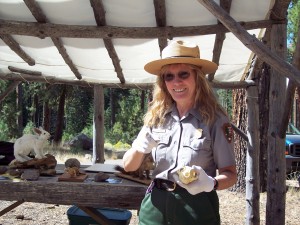About a year and a half ago, a fairly new friend of the family came over for a visit on a day that Neil had forgotten to take his medication. Behaviorally, he was difficult – highly agitated and unfocused. At one point, when he was prevented from doing something that he wasn’t supposed to do, he went into full meltdown mode, growling and writhing on the floor, grabbing my legs and biting them.
Our friend tried to put a humorous spin on things. “Oh, he’s freestylin’!”
“Yeah,” I said, yanking a leg out of my son’s grip. At the time, it was painfully obvious that Neil very much needed his two types of medication to manage his behavior, both at home and at school. And it made a huge difference for him, enabling him to be mainstreamed with assistance and – unless a dose was forgotten – eliminating or subduing his meltdowns. I think both of us were relieved by it.
But, like most medications, his has its drawbacks. In addition to Neil’s excessively itchy scalp, it also caused noticeable joint stiffness for which he needed to see an orthopedist. And then there was something noticeable only to me – his eyes. I didn’t get to see much of them anyway, but I saw them enough to know them. Now when I looked in his eyes, there was a listlessness – a vacancy – caused by the medication. I wanted his behavior to change, not his countenance. Of course I welcomed the behavioral management, but his eyes were different. He didn’t look like himself, even when he smiled. I looked forward to the day when I could look into his eyes and see him again.
That day came last week.
This past November, we discontinued the antidepressant, and he did fine with that. Every week afterward, Neil kept asking me when he could stop taking the other medication, and as much as I also wanted him to stop taking it, I wanted to be sure that he was ready. If not, we could have him go back on it, but that would have been difficult after the six-week weaning process (cessation can cause withdrawal symptoms if not done gradually). In March, I felt that he was ready, and we began the process. There were a few times when I wondered if it was too soon, but we pulled through. In fact, Neil’s overall adjustment has been phenomenal. During that six-week period, we had two weeks of considerable upheaval while all of the flooring in our home was being replaced. Every room of the house, including Neil’s, had to be completely emptied and furniture had to be relocated, including pieces of our sectional couch being kept in the kitchen for three days. Neil was a bit on-edge during that time, and his medication was down to half-dose, but I am thrilled to report that he did not have a single meltdown. Not even close.
He became a little agitated at school during the weaning process, but he worked through it. This is huge progress for him! In the past, his agitation would lead to outbursts because he could not regulate his emotions or behavior. And now he can. The real test came last week when he was completely unmedicated and we attended his Court of Honor to receive a Scout rank advancement that he’d worked toward for two years. He had a new merit badge sash that he spent quite a bit of time applying his merit badges to, and he looked forward to wearing it. That night, we ate dinner and then got ready to go to the Court of Honor. After he dressed in his uniform, Neil built some Lego while I washed the dishes. When it was time to go, I grabbed my camera and my dessert contribution, and then we left. The meeting room, before the presentation started, was unstructured and loud with parents chatting and kids playing, and I looked to see how Neil was handling it. I could tell he was getting a little amped up, and then I noticed that he had forgotten to wear his new merit badge sash. I had to tell him before he discovered it during the presentation, which could have been disastrous.
I approached him quietly and broke the news. Angrily, he sucked in his breath and clenched his fists by his side. “It’s okay,” I told him. “Look – several of the other Scouts forgot their sashes too.” I could see him processing, regulating. Within ten seconds he had unclenched his jaw and fists and merely sighed in disappointment. “I was distracted by the Lego,” he muttered.
Sighing and muttering. This is freestyle now, and it’s a far cry from growling and writhing on the floor. In addition to that, he reported last week when he got home from school that for the first time ever he did not feel drowsy during second period, and he feels like he’s able to focus better. His scalp no longer itches. To top it all off, the next night at dinner he looked at me as he described a new movie idea, and he held eye contact for the longest I’ve ever experienced. It was incredible. And this time, the vacant look was completely gone. It was Neil again. I gazed into his beautiful eyes, absorbing his essence.
I’ve got my son back. And he’s better than ever.
Image credit:  Dalibor Ogrizovic
Dalibor Ogrizovic








